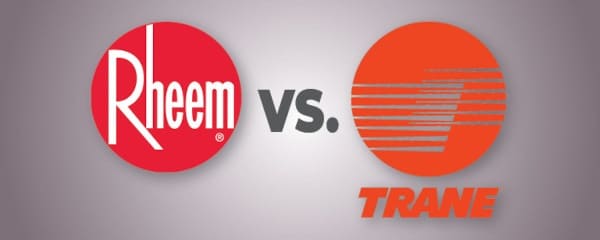Introduction
When it comes to heating, ventilation, and air conditioning (HVAC) systems, two prominent names stand out in the market: Trane and Rheem. Homeowners and businesses alike often find themselves in a dilemma when choosing between these industry giants. In this comprehensive guide, we will delve into the intricacies of Trane and Rheem HVAC systems, dissecting their features, performance, and overall value.
Trane: Engineering Excellence
1. Legacy of Innovation
Trane has carved its niche in the HVAC industry with a rich legacy of innovation spanning over a century. Renowned for its cutting-edge technology and commitment to energy efficiency, Trane has consistently delivered products that stand the test of time.
2. High-Efficiency Systems
One of Trane’s standout features is its emphasis on high-efficiency systems. Homeowners seeking to optimize energy consumption and reduce utility bills often turn to Trane for its range of products designed with the latest advancements in energy-efficient technology.
3. Durability and Reliability
Trane’s reputation for durability precedes itself. The robust construction and meticulous engineering of Trane HVAC units ensure longevity and reliability. This reliability factor is crucial for homeowners looking for a long-term investment in their home comfort.
Rheem: Setting Benchmarks in Performance
1. Innovative Technology Integration
Rheem, a formidable competitor, brings its own set of strengths to the HVAC arena. The brand is synonymous with innovative technology integration, constantly pushing the boundaries of what HVAC systems can achieve in terms of performance and user experience.
2. Comprehensive Product Range
Rheem caters to diverse consumer needs with a comprehensive product range. From budget-friendly options for the cost-conscious to high-end units equipped with the latest smart technology, Rheem ensures there’s a perfect fit for every household.
3. Quiet and Efficient Operation
One standout feature of Rheem HVAC systems is their quiet and efficient operation. Homeowners appreciate the minimal noise levels combined with optimal performance, creating an ideal indoor environment without disrupting the peace and tranquility of their homes.
Head-to-Head Comparison
1. Energy Efficiency
Trane’s commitment to energy efficiency is commendable, boasting a range of systems with high SEER (Seasonal Energy Efficiency Ratio) ratings. On the other hand, Rheem’s innovative technologies contribute to systems that not only save energy but also operate at peak performance.
2. Warranty Coverage
Warranty coverage is a crucial factor in the decision-making process. Trane typically offers competitive warranties, but Rheem goes the extra mile with extended warranties on select products, providing consumers with added peace of mind.
3. Installation and Maintenance
Both Trane and Rheem systems require professional installation for optimal performance. However, some users find Rheem systems easier to maintain, thanks to user-friendly features and intuitive interfaces.
Making the Decision
In the Trane vs. Rheem showdown, the ultimate decision depends on individual preferences, budget considerations, and specific requirements. Trane’s legacy of innovation and emphasis on energy efficiency may sway those looking for a reliable and enduring system. On the other hand, Rheem’s diverse product range and technological prowess appeal to consumers seeking cutting-edge features and customizable options.
Conclusion
In conclusion, the choice between Trane and Rheem is not a one-size-fits-all decision. Both brands have their merits, and the final verdict hinges on your unique needs and priorities. Whether you prioritize energy efficiency, quiet operation, or innovative technology, both Trane and Rheem offer compelling options for discerning homeowners.





